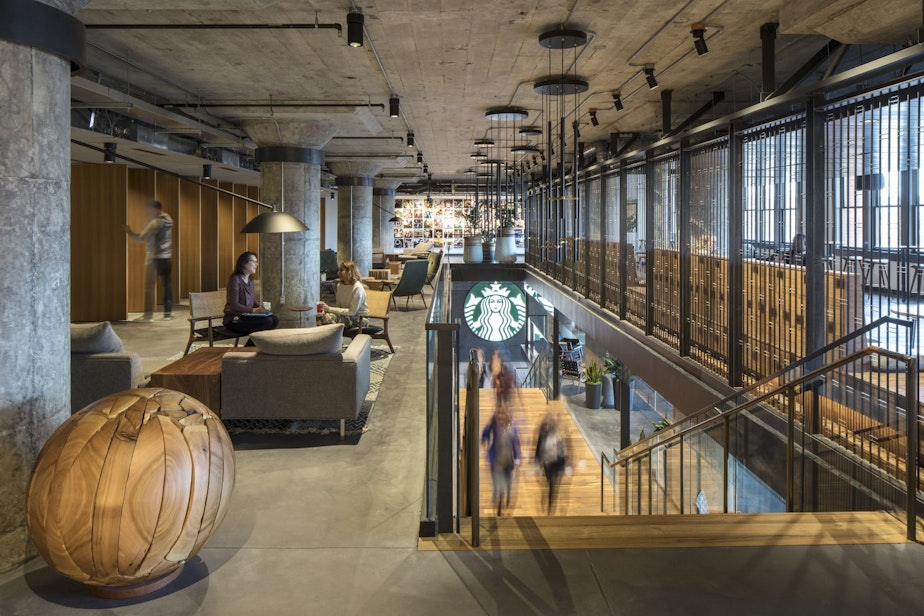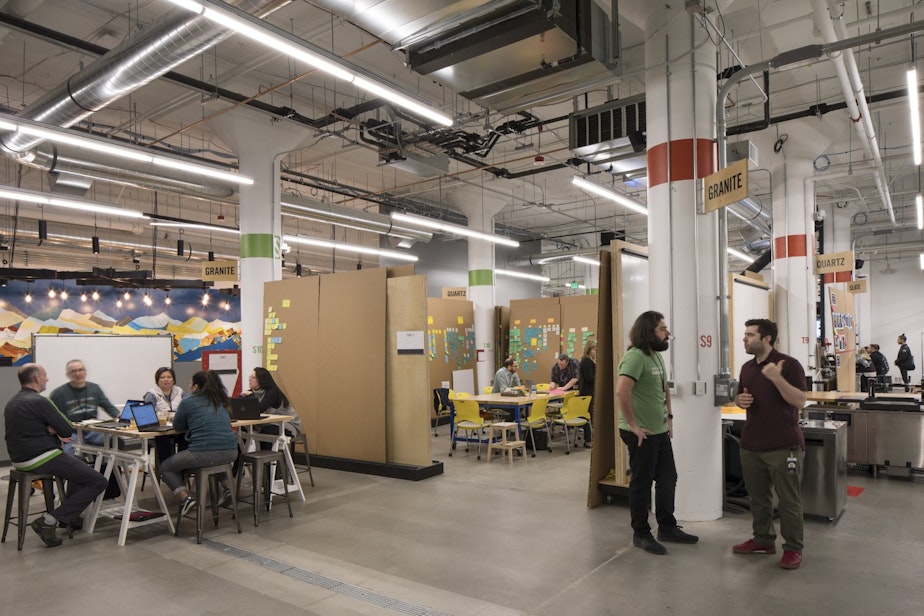Starbucks HQ will take a pandemic gap year to rethink work

At a time when so many people are asking what work will look like after the pandemic, Starbucks' approach gives us one possible answer.
The 4,000 employees at Starbucks headquarters in Seattle’s SODO neighborhood will not return to the office for another year.
The decision was reached partly because of Covid-19. But the company also plans to completely redesign and rebuild the inside of its headquarters building around a new vision for office work, while employees are gone.
Starbucks is betting that the pandemic has changed how we work forever. That could mean that when its headquarters opens back up in October 2021, many people won’t have their own desk.
Instead, those employees will work from home when that makes the most sense, and they'll come to work when they need to collaborate with others. To do that, they'll book a parking space, book a desk or a meeting room, or just gather around cafe tables with their colleagues.
Choosing how you work could become more like ordering food from a coffee shop, in the future. At Starbucks, not everyone will see the same menu, however. Some people will still need to be at the office all the time, depending on their job, a spokesperson said.
Sponsored
The company already got rid of cubicles several years ago, in order to make its workspaces feel more collaborative. But by eliminating most private desks, the company's taking that concept a step further.

Workers who really want a permanent desk can still have one. But the company says its employees love having the option of working from home and many will choose to keep doing so.
Many companies will face this same issue, should they choose to allow remote work to continue after the pandemic. If they choose to keep private desks, that means a lot of office space will look pretty empty most of the time.
Starbucks has chosen a different route. By making desks shared and bookable, fewer desks are needed.
Sponsored
That leaves the company with lots of extra space to be redesigned, and to focus on collaboration in an environment that feels less like an office and more like a coffee shop.
Technology will be piped in everywhere, a spokesperson said, so that when coworkers gather spontaneously at a table, they can still include anyone still working at home.

